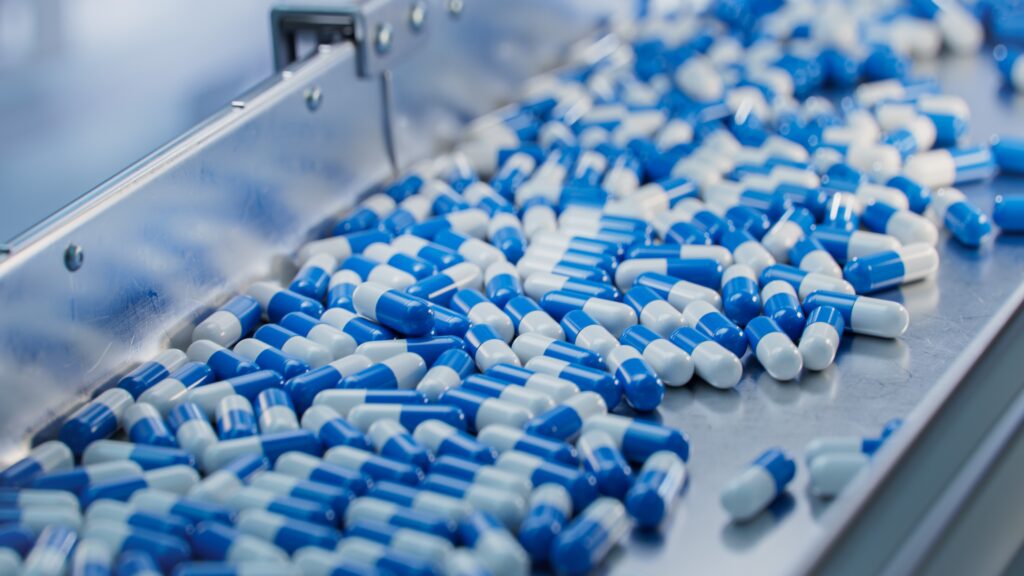As global industries face US tariff threats from the Trump administration, big pharma is bolstering its US foothold with major investments announced by Bristol Myers Squibb (BMS) and Gilead Sciences this week.
On May 5, BMS CEO Christopher Boerner announced the company will invest $40 billion over the next five years in its US operations. The investment is aimed at boosting R&D and expanding manufacturing capabilities.
Boerner emphasized the importance of the US market, noting it accounts for about two-thirds of the company’s global revenue.
He also highlighted the company’s commitment to staying at the forefront of innovation, particularly in oncology, immunology and cardiovascular disease.
Two days later, on May 7, Gilead Sciences shared that it will commit an additional $11 billion in investments across the US.
The company said the new funding will add to its previously planned $21 billion investment, for a total of $32 billion, to strengthen US manufacturing and R&D through 2030. The $11 billion will cover the creation of about 800 new direct jobs and support more than 2,200 indirect jobs by 2028.
Gilead estimates the investment will generate $43 billion in value to the US economy over the next five years. It estimates the new $11 billion investment will generate the same amount ($11 billion) in US economic impact.
Gilead said its US R&D and manufacturing footprint is its largest globally.
Related: Eli Lilly Announces $27B Investment to Boost US Manufacturing
Boerner first shared BMS’s new investment in an opinion piece published in Stat News on Monday. A company spokesperson later confirmed the news to Reuters.
In the op-ed, Boerner said the funds will go towards R&D, technology and domestic manufacturing as companies brace for the impact of Trump’s tariffs.
Gilead said its investments will go towards new technology, building three new facilities and upgrading three existing sites.
Almost half of the $11 billion will go towards capital projects, including labs and equipment, as well as technology, operations and R&D site activities. $2 billion will be allocated for digital and advanced engineering initiatives.
On Monday, Trump signed an executive order aimed at speeding up the approval process for drug production as part of new regulations to boost domestic manufacturing.
Trump has threatened pharmaceutical import tariffs on several occasions, citing national security concerns. However, the sector has long been exempt due to concerns over potential harm.
But this week, he said he plans to make an announcement on the tariffs in the next couple of weeks.
Other major pharma companies have also announced plans to ramp up spending in the US in recent months as they prepare for possible pharma tariffs.
These include Eli Lilly, Johnson & Johnson and Merck, which recently announced additional multi-billion-dollar investments to boost domestic production.
Merck will be investing $895 million in manufacturing and R&D facilities at Merck Animal Health’s manufacturing facility in De Soto, Kansas.
At the end of April, Merck broke ground on a new $1 billion biologics center of excellence in Wilmington, Delaware, that will house laboratory, manufacturing and warehouse functions to “enable the launch and commercial production of next-generation biologics and therapies,” the company said. This will include the production of its blockbuster oncology drug Keytruda (pembrolizumab).
In addition to uncertainties around pharma tariffs, the US biopharma industry is also navigating increased political scrutiny, pricing pressures and regulatory shifts, including the Inflation Reduction Act’s drug pricing provisions.
Boerner explained that strengthening US manufacturing offers greater control over complex supply chains while aligning production closer to where most R&D occurs.
“Through this investment plan, we will strengthen our presence across the country, ramp up radiopharmaceutical manufacturing and invest in artificial intelligence and machine learning to help us significantly increase the pace of innovation,” he said.
With both companies positioning themselves for sustained growth on a potentially rocky road ahead with tariffs, the announcements also raise expectations for expanded clinical development, accelerated drug launches and new strategic partnerships.
The Trump administration has been pressuring US drugmakers to relocate drug production domestically. He even announced investigations into drug imports, setting the stage for potential industry tariffs.
If you want to have your organization featured on Xtalks, please email Ayesha Rashid at: [email protected]












Join or login to leave a comment
JOIN LOGIN